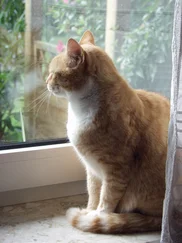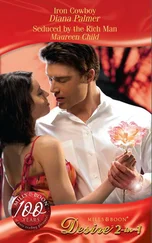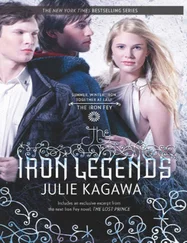What would count in Florence 's eyes as a serious death? What would win her approval? Answer: a death that crowns a life of honourable labour; or else that comes of itself, irresistible, unannounced, like a clap of thunder, like a bullet between the eyes.
Florence is the judge. Behind the glasses her eyes are still, measuring all. A stillness she has already passed on to her daughters. The court belongs to Florence; it is I who pass under review. If the life I live is an examined life, it is because for ten years I have been under examination in the court of Florence.
'Have you got Dettol?'
His voice startled me as I sat in the kitchen writing. His, the boy's.
'Go upstairs. Look in the bathroom, the door on the right. Look in the cupboard under the basin.'
There were splashing noises, then he came down again. The bandage was off; with surprise I noticed that the stitches were still in.
'Didn't they take out the stitches?'
He shook his head.
'But when did you leave the hospital?'
'Yesterday. The day before yesterday.'
Why the need to lie?
'Why didn't you stay and let them take care of you?'
No response.
'You must keep that cut covered, otherwise it will get infected and leave you with a scar.' With a mark Eke a whiplash across his forehead for the rest of his life. A memento.
Who is he to me that I should nag him? Yet I held closed his open flesh, staunched the flow of his blood. How persistent the impulse to mother! As a hen that loses its chicks will take in a duckling, oblivious of the yellow fur, the flat beak, and teach it to take sand-baths, peck at worms.
I shook out the red tablecloth and began to cut it. 'I don't have any bandage in the house,' I said, 'but this is quite clean, if you don't mind red.' Around his head I wound a strip twice and knotted it behind. 'You must go to a doctor soon, or a clinic, to have the stitches taken out. You can't leave them in.'
His neck stiff as a poker. A smell coming from him, the smell that must have set the dog off: nervousness, fear.
'My head is not sore,' he said, clearing his throat, 'but my arm' – he moved, his shoulder gingerly – 'I must rest my arm.'
'Tell me, are you running away from someone?'
He was silent.
'I want to speak to you seriously,' I said. 'You are too young for this kind of thing. I told Bheki so and I tell you again. You must listen to me. I am an old person, I know what I am talking about. You are still children. You are throwing away your lives before you know what life can be. What are you – fifteen years old? Fifteen is too young to die. Eighteen is too young. Twenty-one is too young. '
He got up, brushing the red band with his fingertips. A favour. In the age of chivalry men hacked other men to death with women's favours fluttering on their helmets. A waste of breath to preach prudence to this boy. The instinct for battle too strong in him, driving him on. Battle: nature's way ' of liquidating the weak and providing mates for the strong. Return covered in glory and you shall have your desire. Gore and glory, death and sex. And I, an old woman, crone of death, tying a favour around his head!
'Where is Bheki?' he said.
I searched his face. Had he not understood what I told him? Had he forgotten? 'Sit down,' I said.
He sat.
I leaned across the table. 'Bheki is in the ground,' 1 said. 'He is in a box in a hole with earth heaped on top of him. He is never going to leave that hole. Never, never, never. Understand: this is not a game like football, where after you fall down you get up and go on playing. The men you are playing against don't say to each other, 'That one is just a child, let us shoot a child's bullet at him, a play bullet.' They don't think of you as a child at all. They think of you as the enemy and they hate you quite as much as you hate them. They will have no qualms about shooting you: on the contrary, they will smile with pleasure when you fall and make another notch on their gunstocks.'
He stared back at me as if I were striking him in the face, blow after blow. But, jaw set, lips clenched, he refused to wince. Over his eyes that smoky film.
'You think their discipline is poor,' I said. 'You are wrong. Their discipline is very good. What holds them back from exterminating every male child, every last one of you, is not compassion or fellow-feeling. It is discipline, nothing else: orders from above, that can change any day. Compassion is flown out of the window. This is war. Listen to what I am saying! I know what I am talking about. You think I am trying to lure you out of the struggle. Well, that is true. That is what I am doing. I say: Wait, you are too young.'
He shifted restlessly. Talk, talk! Talk had weighed down the generation of his grandparents and the generation of his parents. Lies, promises, blandishments, threats: they had walked stooped under the weight of all the talk. Not he. He threw off talk. Death to talk!
'You say it is time to fight,' I said. 'You say it is time to win or lose. Let me tell you something about that win or lose. Let me tell you something about that or. Listen to me.
'You know I am sick. Do you know what is wrong with me? I have cancer. I have cancer from the accumulation of shame I have endured in my life. That is how cancer comes about: from self-loathing the body turns malignant and begins to eat away at itself.
'You say, 'What is the point of consuming yourself in shame and loathing? I don't want to listen to the story of how you feel, it is just another story, why don't you do something?' And when you say that, I say, 'Yes.' I say, 'Yes.' I say, 'Yes.'
'There is nothing I can reply but 'Yes' when you put that question, to me. But let me tell you what it is like to utter that 'Yes.' It is like being on trial for your life and being allowed only two words, Yes and No. Whenever you take a breath to speak out, you are warned by the judges: 'Yes or No: no speeches.' 'Yes,' you say. Yet all the time you feel other words stirring inside you like life in the womb. Not like 'a 'child kicking, not yet, but like the very beginnings, like the deep-down stirring of knowledge a woman has when she is pregnant.
'There is not only death inside me. There is life too. The death is strong, the life is weak. But my duty is to the life. I must keep it alive. I must.
'You do not believe in words. You think only blows are real, blows and bullets. But listen to me: can't you hear that the words I speak are real? Listen! They may only be air but they come from my heart, from my womb. They are not Yes, they are not No. What is living inside me is something else, another word. And I am fighting for it, in my manner, fighting for it not to be stifled. I am like one of those Chinese mothers who know that their child will be taken away from them, if it is a daughter, and done away with, because the need, the family's need, the village's need, is for sons with strong arms. They know that after the birth someone will come into the room, someone whose face will be hidden, who will take the child, from the midwife's arms and, if the sex is wrong, turn his back on them, out of delicacy, and stifle it just like that, pinching the little nose to, holding the jaw shut. A minute and all is done.
'Grieve if you like, the mother is told afterwards: grief is only natural. But do not ask: What is this thing called a son? What is this thing called a daughter, that it must die?
'Do not misunderstand me. You are a son, somebody's son. I am not against sons. But have you ever seen a newborn baby? Let me tell you, you would find it hard to tell the difference between boy and girl. Every baby has the same puffy-looking fold between the legs. The spout, the tendril that is said to mark out the boy is no great thing, really. Very little to make the difference between life and death. Yet everything else, everything indefinite, everything that gives when you press it, is condemned unheard, I am arguing for that unheard.
Читать дальше












